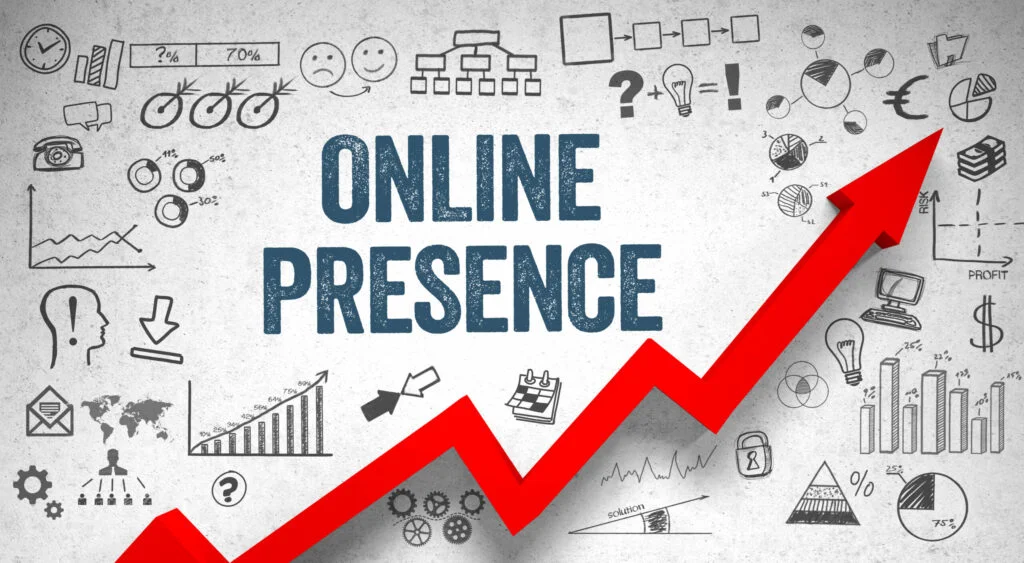
Starting an online business is an exhilarating journey that can turn your ideas into profitable ventures. Whether you’re a budding entrepreneur or an experienced business owner looking to expand into the digital realm, this comprehensive guide will take you from brainstorming to launching your online dream. In this article, we’ll explore essential steps, from finding the right business idea to overcoming challenges and scaling your venture. By the end, you’ll have a roadmap to transform your online business idea into a successful reality.
Table of Contents
Introduction
A. Importance of Online Business
In today’s digital age, the online marketplace offers endless opportunities for entrepreneurs. With the rise of e-commerce and digital services, consumers are increasingly turning to the internet for their shopping and service needs.
B. Transition from Idea to Reality
Many successful online businesses started as simple ideas. What sets them apart is the execution—turning those ideas into tangible products or services that meet market demands.
C. Overview of Steps
This guide will provide a step-by-step approach to help you navigate the process of launching your online business. From initial brainstorming to scaling your venture, each section will delve into crucial aspects of entrepreneurship in the digital landscape.
Brainstorming Your Online Business
A. Finding Your Passion
The foundation of a successful online business often lies in passion. Consider your interests, hobbies, and skills. What excites you? What problems can you solve?
B. Identifying Market Gaps
Research existing online businesses within your niche. Look for gaps or unmet needs in the market. These gaps present opportunities for innovation and differentiation.
C. Researching Demand
Validate your business idea by researching its demand. Use tools like Google Trends, keyword research, and surveys to understand if there’s a viable market for your product or service.
Defining Your Niche
A. Understanding Niche Markets
Niche markets offer focused opportunities for success. Identify a specific segment of the market where you can excel and establish yourself as an authority.
B. Evaluating Profitability
While passion is crucial, profitability is equally important. Evaluate the potential profitability of your niche by analyzing competitors, pricing strategies, and customer spending habits.
C. Choosing the Right Niche
Balance your passion with market demand and profitability. Choose a niche that aligns with your interests, has a market need, and offers viable revenue potential.
Crafting Your Online Business Idea

A. Developing a Unique Value Proposition
Define what sets your business apart from competitors. Your unique value proposition should clearly communicate the benefits customers will receive from choosing your products or services.
B. Validating Your Idea
Before investing significant resources, validate your business idea through market research and feedback. Test your concept with a small audience or through a minimum viable product (MVP).
C. Refining Your Concept
Use feedback to refine and improve your business concept. Iterate on your ideas based on customer input, market trends, and emerging technologies.
Creating a Solid Business Plan
A. Elements of a Business Plan
A comprehensive business plan outlines your business goals, target audience, marketing strategies, financial projections, and operational plans. It serves as a roadmap for your venture.
B. Financial Projections
Estimate your startup costs, revenue streams, and expenses. Financial projections help you understand the financial feasibility of your business and attract potential investors.
C. Setting SMART Goals
SMART (Specific, Measurable, Achievable, Relevant, Time-bound) goals provide clarity and direction. Define short-term and long-term goals that guide your business decisions.
Building Your Online Presence

A. Domain Name Selection
Choose a domain name that reflects your brand and is easy to remember. Consider domain extensions (.com, .net, .org) and ensure availability.
B. Website Design Tips
Design a user-friendly website with clear navigation, responsive layout, and compelling visuals. Optimize for mobile devices, as a growing number of users browse on smartphones.
C. Content Strategy
Create valuable and engaging content that resonates with your target audience. Incorporate SEO best practices to improve visibility on search engines.
Establishing Legal and Financial Foundations
A. Registering Your Business
Select a business structure (sole proprietorship, LLC, corporation) and register your business with the appropriate authorities. Obtain necessary licenses and permits.
B. Understanding Tax Obligations
Consult with a tax professional to understand your tax obligations. Keep accurate financial records and set aside funds for taxes.
C. Financial Management Tools
Utilize accounting software and financial management tools to track income, expenses, and cash flow. These tools provide insights into your business’s financial health.
Preparing Your Launch Checklist
A. Inventory Management
If you’re selling physical products, establish an efficient inventory management system. Monitor stock levels, reorder points, and supplier relationships.
B. Supplier Relationships
Build strong relationships with suppliers to ensure timely delivery and quality products. Negotiate terms that benefit both parties.
C. Packaging and Shipping
Design packaging that reflects your brand identity and protects products during shipping. Research shipping options and costs to offer competitive rates.
Marketing Strategies for Launch
A. Social Media Marketing
Create a social media strategy to build brand awareness and engage with your audience. Use platforms like Instagram, Facebook, and Twitter to share content and promotions.
B. Email Campaigns
Build an email list of potential customers and create targeted email campaigns. Personalize messages and offer incentives to encourage conversions.
C. Influencer Collaborations
Partner with influencers in your niche to reach a wider audience. Influencer collaborations can help amplify your brand message and drive sales.
Funding Your Online Business
A. Self-Funding Options
Bootstrapping, or self-funding, involves using personal savings or income to finance your business. It offers autonomy but may limit growth potential.
B. Seeking Investors
Pitch your business idea to investors or venture capitalists. Prepare a compelling pitch deck and business plan to secure funding.
C. Crowdfunding Platforms
Consider crowdfunding platforms like Kickstarter or Indiegogo to raise capital from a larger pool of backers. Crowdfunding requires a compelling campaign and clear value proposition.
Handling Legal Aspects
A. Copyrights and Trademarks
Protect your intellectual property by registering copyrights and trademarks. These legal protections prevent others from using your creative work without permission.
B. Terms and Conditions
Draft clear terms and conditions for your website or app. Include policies on returns, refunds, and user agreements to protect your business legally.
C. Privacy Policies
Comply with data protection laws by creating a privacy policy. Inform users about how their personal information is collected, used, and stored.
Launching Your Online Dream
A. Soft Launch Strategies
Before a full-scale launch, conduct a soft launch to test your website or app. Gather feedback from early users to identify and address any issues.
B. Monitoring Performance
Use analytics tools to track website traffic, user behavior, and sales metrics. Monitor key performance indicators (KPIs) to measure success.
C. Gathering Customer Feedback
Encourage customers to provide feedback through surveys, reviews, and social media. Use this feedback to improve products, services, and customer experiences.
Scaling Your Online-Business
A. Identifying Growth Opportunities
Explore opportunities for expansion, such as new product lines or target markets. Stay updated on industry trends and consumer preferences.
B. Expanding Product Lines
Diversify your product offerings to appeal to a broader audience. Introduce complementary products or variations to meet customer needs.
C. International Expansion
Consider expanding into international markets to reach a global audience. Research market demand, cultural differences, and regulatory requirements.
Overcoming Challenges
A. Common Startup Challenges
Every startup faces challenges, from funding constraints to market competition. Recognize these challenges and prepare contingency plans.
B. Solutions and Workarounds
Develop creative solutions to overcome obstacles. Seek mentorship, attend networking events, and learn from industry peers’ experiences.
C. Staying Resilient
Entrepreneurship is a journey filled with ups and downs. Cultivate resilience and persistence to navigate challenges and setbacks.
Conclusion
A. Celebrating Milestones
As you reach milestones and achieve goals, take time to celebrate your successes. Acknowledge the hard work and dedication that went into building your online business.
B. Encouragement for Entrepreneurs
To aspiring entrepreneurs, remember that every successful business started with an idea and determination. Embrace the journey, learn from failures, and keep pushing forward.
C. Final Thoughts and Next Steps
Launching an online business is a rewarding endeavor that requires careful planning, dedication, and adaptability. Use this guide as a roadmap to turn your online business dream into a thriving reality.
A frequently-asked questions (FAQ)
1. What are some online business ideas I can consider?
- There are numerous online works ideas to explore, such as e-commerce stores selling niche products, digital marketing agencies, online coaching or consulting services, content creation (blogs, videos, podcasts), app development, and more.
2. How can I create a successful startup guide?
- To create a successful startup guide, focus on providing valuable and actionable information. Break down the process into clear steps, offer practical tips and resources, and include real-life examples or case studies to illustrate key points.
3. What should be included in my launch checklist?
- Your launch checklist should cover various aspects, including product/service readiness, website functionality testing, marketing materials preparation, inventory management, shipping logistics, legal compliance checks, and customer support setup.
4. What are some entrepreneur tips for beginners?
- For beginners, it’s essential to start with thorough market research to validate your business idea. Build a strong online presence through social media and content marketing. Network with industry peers and seek mentorship. Stay adaptable and willing to pivot based on feedback.
5. How can I ensure my online business idea is unique?
- To ensure uniqueness, conduct a competitive analysis to see what similar businesses are offering. Identify gaps or areas for improvement in existing solutions. Focus on your strengths, unique selling points, or innovative approaches that set your business apart.
6. What legal steps do I need to take before launching my online work?
- Before launching, consider registering your business entity, obtaining necessary licenses or permits, drafting terms and conditions, privacy policies, and complying with data protection regulations. Consult with legal professionals for specific guidance.
7. How do I attract customers to my online work?
- Attracting customers involves a multi-faceted approach. Utilize social media marketing, search engine optimization (SEO), email campaigns, influencer partnerships, and content marketing. Offer promotions, discounts, or unique value propositions to entice customers.
8. What are some common challenges faced by online entrepreneurs?
- Common challenges include fierce competition, customer acquisition costs, managing cash flow, technological changes, scaling too quickly or too slowly, and staying motivated through setbacks. Being aware of these challenges allows for better preparation.
9. How can I secure funding for my online work?
- Funding options include self-funding (using personal savings or income), seeking investors (angel investors, venture capitalists), crowdfunding platforms (Kickstarter, Indiegogo), or business loans. Each option has its requirements and considerations.
10. What are essential steps for scaling an online business successfully?
- Scaling involves strategic expansion while maintaining quality and customer satisfaction. Focus on optimizing operations, diversifying product offerings, exploring new markets, investing in marketing and customer retention, and building a strong team.
11. How do I protect my online business from plagiarism or copyright infringement?
- Protect your intellectual property by registering copyrights and trademarks for your brand, products, or content. Monitor online channels for unauthorized use and take legal action if necessary. Clearly state copyright policies on your website.
12. How can I improve my online work SEO ranking?
- To improve SEO ranking, focus on keyword research and optimization, creating high-quality content that answers user queries, improving website speed and mobile-friendliness, obtaining backlinks from reputable sources, and using SEO tools for analysis.
13. What are some effective marketing strategies for launching an online business?
- Effective marketing strategies include social media campaigns, influencer collaborations, email marketing, search engine marketing (SEM), content marketing (blogs, videos), and hosting launch events or promotions to create buzz.
14. How do I stay updated with the latest trends in online business?
- Stay updated by following industry news, attending webinars or conferences, joining online communities or forums, subscribing to newsletters or blogs from reputable sources, and networking with fellow entrepreneurs.
15. What should I do if my online business encounters a crisis?
- In times of crisis, maintain transparency with customers, communicate updates promptly, offer solutions or alternatives, seek feedback, and adapt your strategies as needed. It’s crucial to have a crisis management plan in place.
16. How can I ensure customer satisfaction and loyalty?
- Prioritize customer experience by providing excellent support, responding to inquiries promptly, seeking feedback for improvement, offering loyalty programs or rewards, and personalizing interactions based on customer preferences.
17. How can I balance work-life harmony as an online entrepreneur?
- Balancing work and personal life is essential for overall well-being. Set boundaries, establish a routine, delegate tasks where possible, take breaks, and prioritize self-care to avoid burnout.
18. What are some online tools or resources that can benefit my online business?
- There are various online tools to aid your work, such as project management software (Trello, Asana), e-commerce platforms (Shopify, WooCommerce), social media scheduling tools (Hootsuite, Buffer), analytics tools (Google Analytics, SEMrush), and design software (Canva, Adobe Creative Suite).
19. How can I ensure my online business complies with data protection regulations?
- Compliance with data protection regulations (such as GDPR or CCPA) involves obtaining user consent for data collection, implementing secure data storage practices, providing clear privacy policies, and respecting user rights regarding their data.
20. What are some common misconceptions about starting an online work?
- Common misconceptions include thinking it’s easy and quick to achieve success, underestimating the importance of market research and planning, expecting immediate profits, and overlooking the ongoing commitment required for long-term growth.





